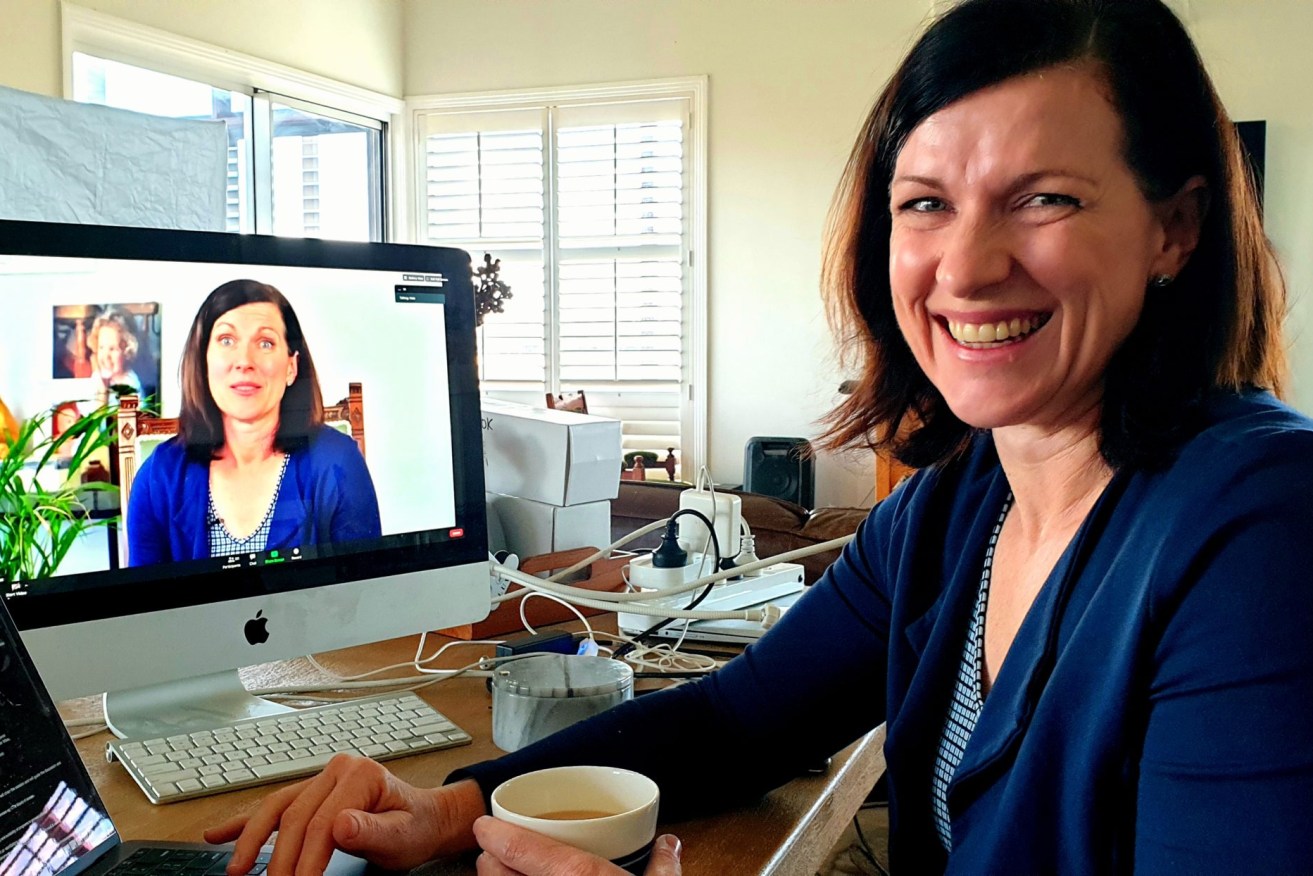Miles in front: Deputy Premier gets physical with rural Queensland
Deputy Premier and Health Minister Steven Miles is literally sweating for rural health, putting his body on the line in a workout video beamed across the state over the weekend.


Outgoing RDAQ president Clare Walker joins the video conference from Longreach.
The newly installed Deputy Premier admitted personal fitness was his secret to maintaining good moods and being more productive.
The video was compiled as part of the Rural Doctors Association of Queensland (RDAQ) annual conference, which this year was held online due to Covid-19 restrictions on mass gatherings.
“I try to take whatever time I can, even if it doesn’t seem like quite enough,” Miles said when asked about maintaining a fitness regimen amid a a busy schedule.
“I struggle to do five (minutes) but I’ll take 20 minutes when I can get it.”
About 200 doctors from around the state connected via video on Saturday, with the Health Minister’s 15-minute workout opening proceedings and now available for doctors to use when they need to de-stress and keep in shape while busy on the clinical frontline.
Leading the workout was personal trainer Joy McClymont, who specialises in delivering training programs to people on isolated properties from her home in Longreach. Joining in also was Longreach GP and outgoing RDAQ president Dr Clare Walker, and Dr Raymond Lewandowski from Innisfail.
The two doctors are among RDAQ’s leadership team, with Lewandowski replacing Walker as the organisation’s president this year.
An American-trained family physician, Lewandowski, who prefers to be called RT, has called rural Australia home for more than 10 years, previously serving as Kingaroy’s medical superintendent before relocating to north Queensland.
Lewandowski paid tribute to his predecessor, saying he felt that she had left big shoes for him to fill.
“Clare has done an amazing job this year under very difficult circumstances,” he said.
“She has led the RDAQ response through COVID-19, and was a strong advocate for the establishment of the Office of Rural Health which was announced in November 2019.
“Clare has continued to build a strong collaboration with Minister Steven Miles and Queensland Health particularly in relation to birthing services.”
The RDAQ video conference, one of the largest yet held among the Australian medical fraternity in the post-pandemic environment, comes as rural doctors call for more telehealth assistance to improve life expectancy in the bush.
A new study shows that Australia’s health system is leaving the bush behind, with the premature mortality gap continuing to widen between people living in the cities, and those outside of them.
Rural Doctors Association of Australia (RDAA) president Dr John Hall said the study – “Widening inequalities in premature mortality in Australia, 2006-16” – showed that continued under-investment in rural healthcare was costing lives.
The study documented a 40 per cent difference in the likelihood of “premature mortality”, defined as deaths of people aged under 75 years, between the city and the country.
“The gap is widening because of the great health care available to people in metro areas,” Hall said.
“And it’s not that care of equal quality isn’t out there in the bush – it’s availability that is the issue.
“Access is such a problem that rural people just don’t present to their GP, non-GP specialist or allied health worker with the same frequency as city people do.
“We know this because Medicare data shows us a massive underspend per capita in rural and remote areas compared to metro areas. Rural people simply don’t access Medicare provided services at even close to the rate of those in the city.
“We also know that private health insurance uptake is less in the bush, and this is again because these patients just don’t see the benefits, being unable to access many of the services covered.”
Hall said increasing the use of telehealth for both GP and specialist referral appointments, which has surged during the pandemic, would drastically improve access for rural and remote people and have real and tangible health benefits.
“Rural health care needs urgent, focussed and immediate attention to stop this disparity from further increasing and the disadvantage to our rural population becoming more pronounced,” he said.








